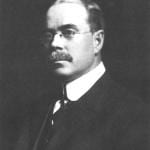Once more a defense of evangelicalism by trying to disassociate this form of Protestantism from Donald Trump and the surveys of Americans that in 2016 find eighty-one percent of evangelical Protestants voted for the president:
What does it mean to be evangelical? The simple answer is that evangelical Christianity is the religion of born-again Christians. Here’s a little more detailed definition: evangelicals are born-again Protestants who cherish the Bible as the Word of God and who emphasize a personal relationship with Jesus Christ through the Holy Spirit.
How then did the term get so politicized? Prompted by Jimmy Carter’s candidacy and his evangelical testimony, in 1976 the news media and polling agencies realized that the “born-again” vote was a seminal political factor. The Gallup organization in 1976 began asking people whether they had been “born again.” The emergence of “evangelical” as a common term in news coverage of politics was a major landmark in the contemporary evangelical crisis. From 1976 forward, “evangelical” would increasingly connote the white religious Republican base. Evangelical leaders enjoyed the increased media attention, but they failed to recognize that they were losing control of the public’s perception of their movement.
Many “evangelicals” in 2016 (maybe around 45%) still didn’t vote, and those who did vote had exceedingly diverse views of politics depending upon their ethnicity. Most born-again or evangelical African American voters supported Democrats. But white evangelicals who sought power in the GOP had come to represent evangelicalism itself for much of the American public. It would be easy to blame the media for this phenomenon. Much of the media cares about religion only to the extent that religion is connected to scandal, politics or conflict.
But would polling the American public on whether they are born again, or have a high view of the Bible, or have Jesus’ Spirit in their hearts clarify anything?
To discern the strength of Lutheranism in the United States someone might reasonably go to the statistics of the largest American Lutheran denominations. There a student of American Christianity could find membership statistics, the number of congregations, information on regional structures, financial data and even some reference to Lutheran creeds and forms of worship. To discover the influence and significance of evangelicalism a researcher faces an altogether different situation. Because the movement is not ecclesial — in fact, no particular denomination in the United States claims to be the Evangelical Church of America — a scholar needs to figure out a different strategy for assessing evangelicals’ significance. Of course, a historian or sociologist could well look at the records of any number of born-again Protestant parachurch organizations, if such documents were accessible to the public. But without a formal mechanism for belonging to evangelicalism, the subject of born-again Protestantism in the United States requires measurements other than what religion scholars typically use to study churches.
Opinion polls and national surveys have generally been the solution to this predicament. The standard practice, as reflected in scholarly articles and monographs, is to devise a set of questions whose responses will identify the person belonging to the evangelical camp. To be sure, to be fully scientific, those who survey the American public need to conduct polls in an impartial manner. Consequently, a poll examining the religious views of citizens of Wheaton, Illinois, would not necessarily be representative of the entire American population. At the same time, surveys prepared to allow researchers to correlate religious convictions to social views need to be crunched in ways that make computing skills essential. Still, arguably the most important part in collecting survey data is developing an adequate set of questions, one that somehow reflects the distinctive ideas and practices of a religious group but does so in a way that does not appear to lead the witness.
The apparent objectivity of recent opinion polling on religion in the United States has contributed mightily to the impression that evangelical Protestantism is one of the most influential, fastest growing and conservative faiths in the nation. Ever since the 1970s when pollsters and social scientists began to ask questions that probed beyond the standard Protestant-Catholic-Jew categories, evangelicalism has claimed anywhere between 20 and 40 million American citizens. The curious aspect of these recent efforts to count evangelicals is the assumption that asking a few questions about the inerrancy of the Bible or conversion experience will uncover those born-again believers formerly hidden by blunter survey instruments. What if, for instance, pollsters were as intent on discovering… the Lutheran presence in the United States? What if telephone surveys asked respondents about the real presence of Christ in the Lord’s Supper or about the imputed righteousness of Christ? Here the findings might not be all that encouraging, either to researchers hoping to chart a Lutheran element in American society or to Lutheran church officials who believed their pastors were training church members well. For the relatively more complicated teachings of the Lutheran confessions would likely not be as intelligible to the American public. Neither would Lutheran doctrine and practices generate the numbers that the general and fairly domesticated articles of evangelical faith do.
As strange as this example might appear, it helps to illustrate another way in which evangelicalism is a construction, this time of pollsters and the science of public opinion. No other way exists for counting evangelicals other than surveys or opening the Lamb’s Book of Life. Since the latter is closed until the inauguration of the New Heavens and New Earth, those curious about the appeal of evangelicalism are stuck with interviewers, multiple-choice questions, and regression analysis. These tools for measuring public opinion have created an evangelical identity in two important ways. First, opinion polls and surveys use questions that academics or pollsters themselves devise. In effect, these scholars arrive arbitrarily at an idea of what the Bible teaches themselves, without reference to what theologians teach or what churches confess. Second, these measurements of public opinion apparently chart a segment of the population that is evangelical. These statistics can appear very impressive and have undoubtedly influenced politicians and religious enterprises in search of Americans who share certain values. Still, the measurement of public opinion is a strange way to show the strength of a religion that emphasizes the supernatural workings of God upon the human heart and that divine truth matters more than human perception. (Deconstructing Evangelicalism)
What students of American Christianity should measure is not answers to questions asked by pollsters but those asked by church officers of prospective church members.












